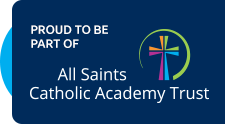English
Intent
At St Albert the Great Catholic Primary School, we believe that a quality English curriculum should develop children’s love of reading, writing and discussion. We aim to inspire an appreciation of our rich and varied literary heritage and a habit of reading widely and often. We recognise the importance of nurturing a culture where children take pride in their writing, can write clearly and accurately and adapt their language and style for a range of contexts. We want to inspire children to use discussion to communicate and further their learning and be confident in the art of speaking and listening. We aim for children to develop a secure knowledge-base in English, which follows a clear pathway of progression as they advance through the primary curriculum. We believe that a secure basis in English skills is crucial to a high quality education and will give our children the tools they need to participate fully as a member of society.
Implementation
Through the systematic daily teaching of phonics in Foundation Stage and Key Stage 1 we aim for children to be equipped with the necessary skills to become a fluent reader. Children in KS2 engage with daily guided reading lessons which help them to focus on developing fluency and comprehension.
Children are taught writing skills through studying a range of fiction texts, non-fiction texts and poetry. We follow the Herts for Learning scheme.
Children learn spellings at home each week and these are tested in school. Additionally, spelling is taught daily in Key Stage 1, in Phonics lessons, and weekly in key Stage 2. Children who need additional support with spelling receive a variety of interventions that are tailored to address their gaps.
We strive to promote reading for pleasure. There are many initiatives in our school that aim to instil a love of reading within our children such as, book fairs, weekly library slots and celebrations of reading such as World Book Day.
Impact
As a result of the teaching and learning of English, the children at St Albert’s will make good progress from their own personal starting point. The children will be able to write clearly and accurately and be able to adapt their writing for a range of contexts, purposes and audiences. Children will be fluent readers with strong comprehension skills. They will acquire a wide vocabulary and have a strong command of the written word. Most importantly, they will develop a love of reading and writing and be well equipped for the rest of their education.
Writing
We follow the HFL Essential writing scheme. Essential writing is built on the foundations of an understanding of purpose and audience, enabling children to focus on the language choices that will underpin their ability to write effectively. Each writing unit is based on high-quality literature that is expertly pitched to study the craft of writing and/ or to inspire high quality writing outcomes. Each lesson is designed to build on the last and each unit fits into a sequential overview that gradually introduces grammar, spelling and composition skills. The units are carefully designed to build children’s vocabulary and oracy and provide suggested written and verbal model
Reading
Phonics
Children from Reception to Year 2 are taught to read through the use of the Essential Letters and Sounds phonics programme. An overview of the scheme can be found below.
Whole class reading
At St Albert the Great, we practice a whole class approach to reading. Whole class reading sessions promote discussion of texts and allow children to become text detectives. The children are exposed to rich and varied vocabulary that they can hear being used in context. The children develop their skills in reading through this healthy diet of high-quality texts and modelled teaching.
During Whole Class Reading sessions, teachers instruct pupils on skills relating to six key reading domains:
- Vocabulary - Give/explain the meaning of words in context
- Inference - Make inference from the text/explain and justify using evidence from the text
- Prediction - Predict what might happen from the details and implied.
- Explanation - Identify/explain how information/narrative content is related and contributes to the meaning as a whole.
- Retrieval - Retrieve and record information / identify key details from fiction and non-fiction.
- Sequence or Summarise - Summarise/sequence the main ideas from the text.
Writing Skills Progression Map
PRIMARY national curriculum - English




